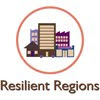Date: Thursday, April 14, 2011
Time: 2:00 PM - 3:30 PM EDT
Register: www2.gotomeeting.com/register/542088139
In the wake of disaster, economic revitalization takes time, patience and creativity. Once matters of health and safety have been restored, it is the job of local elected officials, business leaders, economic developers and members of the community to decide how to rebuild their home.
This webinar will draw from two diverse case studies that reflect very unique approaches to post-disaster economic recovery. First, we will examine the rebuilding efforts of communities along the upper Texas coast following Hurricanes Ike in 2008. Chuck Wemple, Economic Development Program Manager for the Houston-Galveston Area Council, will discuss tourism-related economic development efforts along with the Council's initiatives to bring wealth and commerce back to the community.
For the second part of the webinar, we will revisit the city of Grand Forks, North Dakota in the aftermath of the 1997 floods that decimated the city. Fourteen years on, we will hear from the former Director of Urban Development of Grand Forks, Terry Hanson, to better understand the downtown revitalization efforts that the city adopted following the event and how those efforts hastened the recovery process.
This webinar is brought to you by the NADO Research Foundation as part of an initiative funded by the U.S. Economic Development Administration to examine and distribute information related to the role of economic development in a post-disaster environment.









